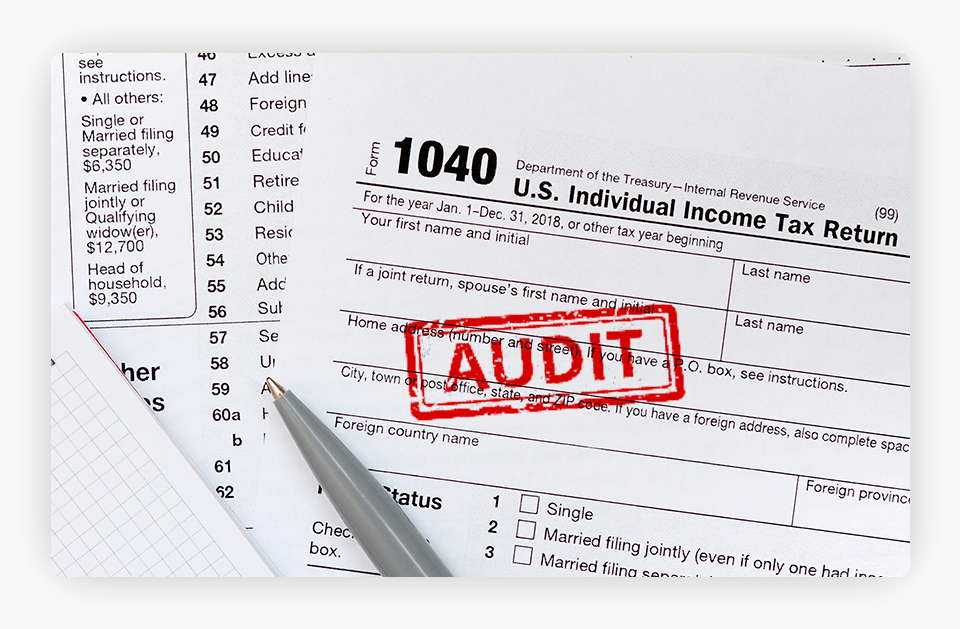We can’t send you updates from Justia Onward without your email.
Unsubscribe at any time.
There’s a reason why an industry has evolved to help people with their taxes. The laws don’t make much sense to the average person. Justia aims to take some of the mystery out of the process with the Justia Tax Law Center.
Nobody looks forward to April 15 each year, when the time comes to pay taxes to the federal government. The Internal Revenue Code and IRS regulations are labyrinthine and highly technical. Many of the provisions seem counterintuitive to the average person, and penalties for violations can be harsh. This is why some Americans resort to tax advisors, attorneys, or other professionals to help them meet their obligations under tax laws. Professional advice also can bring a taxpayer’s attention to any loophole or benefit that they may have overlooked, reducing their tax burden. However, not everyone can afford professional help with their taxes. Even people who can afford it may want to know the basics about how the law works before diving into the details, or deciding whether they want professional help.
The Tax Law Center at Justia can help both individuals and businesses learn about the opaque rules in this area. We have divided the center into four main sections. These cover personal taxes, business taxes, tax debts when someone falls behind on their obligations, and tax audits when the IRS checks to make sure that a taxpayer followed the law. The Tax Law Center also covers topics such as property tax, estate tax, and sales tax more briefly.
Personal Taxes

In 2018, a federal law called the Tax Cuts and Jobs Act greatly altered income tax rules for many taxpayers. The TCJA reduced the tax rate for the highest tax bracket, while creating a 12 percent tax bracket, and it changed the deductions that taxpayers can claim. The law removed some itemized deductions that used to be available, such as investment expenses and unreimbursed employee expenses. It limited certain other itemized deductions, including the deduction for paying state and local taxes. In exchange, the TCJA doubled the standard deduction that is available to all taxpayers as an alternative to itemizing their deductions. These changes to the law make the standard deduction more attractive than it was before.
However, some deductions still remain available. For example, a taxpayer who itemizes their deductions can potentially deduct property taxes levied by local governments, up to a limit. Homeowners also may use a home mortgage interest deduction if they itemize their deductions. Regardless of whether they itemize or use the standard deduction, a taxpayer who sells their home may be able to use a home sale tax exclusion for part of the gain received from the sale.
While a deduction reduces the amount of income on which a tax is collected, a credit is another type of tax benefit that reduces the amount of tax that must be paid. Some types of tax credits are based on having a dependent, such as the child tax credit and the child and dependent care credit. Thus, a taxpayer should understand how dependents are defined under tax law. The size of the earned income tax credit also varies according to how many qualifying children they have.
Business Taxes

Business owners should know about the tax obligations of their entity, which can vary depending on the type of business form that they chose. The Tax Cuts and Jobs Act affected this area of tax law as well. The new law reduced the tax rate for C corporations, while creating a pass-through tax deduction for other types of businesses. Other changes brought by the TCJA were less helpful, such as removing tax deductions for the costs of business entertainment and for commuting to work.
However, the TCJA did not remove the core type of business tax deduction, which covers ordinary and necessary expenses for running a business. If you use your home for your business, moreover, a home office deduction may be available. Rules for business taxes and deductions tend to be even more complex than rules for personal taxes, so a business owner may want to work with a tax professional who understands the applicable nuances. They also should be aware of their obligations under state laws for business taxes. If they operate in more than one state, they may need to pay taxes in each state.
Tax Debts

Falling behind on taxes can be unnerving for many taxpayers. Even filing for bankruptcy may not solve this problem. Fortunately, the IRS offers multiple solutions to clear back taxes. For example, a taxpayer may be able to arrange an offer in compromise. This means that they agree to pay a certain portion of what they owe, while the IRS forgives the rest of the debt. An offer in compromise is generally available only if the IRS probably will not be able to collect the full amount of the debt for the foreseeable future, or if there are exceptional circumstances that would cause an economic hardship to the taxpayer if they paid the full debt.
Other taxpayers may be able to resolve their tax debt through an installment payment plan. People who have no more than $50,000 in tax debt can set up a six-year plan fairly routinely, while people who owe a greater amount must submit a specific form to ask for IRS approval. A taxpayer should be aware that interest and penalties will continue to accumulate on a tax debt during an installment payment plan.
Tax Audits

For people or businesses concerned about facing a tax audit, the good news is that these are very rare. However, people at each end of the tax brackets may face a greater risk of an audit. The IRS also tends to audit self-employed people at a higher rate than average. To prevent complications and potential negative consequences, a taxpayer should make sure to keep records related to their taxes. In most cases, the IRS can conduct an audit within three years after a taxpayer files a return, but the period extends to six years in some cases.
If the IRS decides after an audit that a taxpayer failed to properly report their tax obligation or pay their taxes, the taxpayer can face civil fines and penalties. In serious cases, they might even face criminal charges. These often arise in situations when the IRS believes that the taxpayer committed fraud, rather than simple negligence. Fraud means that they intentionally deceived the IRS in an effort to pay lower taxes.
Final Thoughts
Taxes are an unpleasant but inescapable part of living in our society. Most people who do not have a strong financial or legal background (and even some who do) find the rules in this area counter-intuitive and hard to understand. If a huge amount of money is at stake, a taxpayer has fallen behind on their taxes, or they are concerned about possible criminal charges, they should promptly consult a tax lawyer about their rights and options. For situations that are less urgent, the Tax Law Center at Justia provides a readable introduction to the topic. Like the other Justia Legal Guides, it aims to make the law transparent and accessible to all.
Related Posts